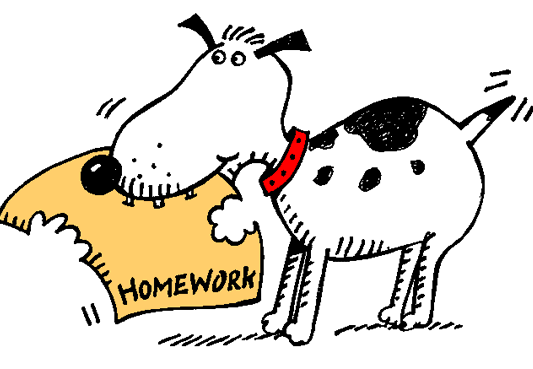[fusion_builder_container hundred_percent=”yes” overflow=”visible”][fusion_builder_row][fusion_builder_column type=”1_1″ background_position=”left top” background_color=”” border_size=”” border_color=”” border_style=”solid” spacing=”yes” background_image=”” background_repeat=”no-repeat” padding=”” margin_top=”0px” margin_bottom=”0px” class=”” id=”” animation_type=”” animation_speed=”0.3″ animation_direction=”left” hide_on_mobile=”no” center_content=”no” min_height=”none”]
I teach high school government and economics, and I abide by a minimal homework policy.
It’s difficult, I know. There are only so many minutes in a period, only so much content we can learn in a day, and it makes sense to build in some practice time via homework. But hear me out: minimizing the quantity of homework for my class has helped me stay sane and build respect in the classroom.
Here’s the primary logic. I understand that my students are not just MY students. They have other classes, they have sports and extra-curriculars, and they have jobs. I understand that sometimes they have practice after school followed by a four-hour shift – and by the time they get home, they already have a few hours’ worth of homework to complete for other classes. Many studies show that homework has impeded students’ sleep, health, and pursuit of endeavors outside of school. By minimizing homework for my class, I’m showing my students that I respect their time and who they are as holistic human beings beyond my class.
But the flipside to this is that I expect my students to respect their time in my classroom as fast-paced, nonstop learning. I expect them to stay focused, on task, and engaged. And if they stray, then they are just putting more work on themselves to be completed at home prior to our next class –essentially, they are assigning themselves homework. Students know when they walk in to my classroom that their butt is going to be kicked, and that they will walk out with the day’s objective achieved.
A second reason to minimize homework is that oftentimes students rush through their homework, sloppily completing it – and at worst, copying answers from a classmate. This means that that student is not truly demonstrating mastery of a concept, and it perpetuates a score-driven mindset where points are valued over learning. I minimize homework in part to minimize cheating.
Finally, minimizing homework minimizes fluff I need to grade. I know we do not have to grade absolutely everything, but this means where I do spend my grading is on meaningful assignments that advance students toward the goal of the class. In turn, I’m actually more invested in my grading, engaged in reading what students have to say, and taking the time to write thoughtful feedback in return. This means I am allocating my time more meaningfully, and my students get more than a score on their assignments.
Minimizing homework has helped me build respect with my students, aid in the functioning and management of my classroom, reduce concerns of cheating, and allows me to spend my grading time more productively. But still, we work in an education system that runs on standards and benchmarks that are often difficult to achieve sans-homework. So how can you build in a minimal homework approach for your classroom?
Most importantly, ensure that every assignment you ask your students on which to devote time has a purpose and fits with the overall goal of your class. My class’s goal is empowerment: to give students the space to flesh out their political views so they can advocate for themselves in society. Accordingly, we engage in something called “issue project”(described here) where students identify a social problem, determine a governmental solution, and create a plan for implementation. This project has some out-of-class components: but students know why I am asking them to devote their time to these assignments, how the pieces fit together, and that it will help them achieve the “empowerment” goal of the class. Because they see the purpose, they are more likely to “buy in” to the assignment themselves and complete it thoroughly.
Try to make any homework assigned “cheat-proof.” Much easier said than done, I know. Instead of worksheets or reading questions, assign quickwrites, cartoons, or students writing questions for class. Not only are these more engaging assignments (duh), but it is also a lot more difficult (and obvious to the teacher) for a student to copy answers from his or her friend.
Maximize time in class so that you can get as much in there as possible. Quickly transition between activities, establish routines that maximize efficiency (such as what materials should be out on one’s desk at all times), have students pick up their own returned papers from a basket, et cetera. Not only can you achieve more during class and therefore have less for students to complete at home, but you also convey to students that you respect time in your classroom, and you expect them to do so in return – a positive for classroom management!
Finally, allow flexibility in assignments. In my Advanced Placement class, I give students a reading pacing calendar for each unit so they see what we are covering each day and to what textbook chapter it corresponds. Students are responsible for keeping up with the reading. Yet, because they get a pacing calendar for three weeks’ time, they can build their reading schedule around their other plans. If a student works every Tuesday and Thursday, she can see what readings are “due” when, and double up on Mondays and Wednesdays. This flexibility shows my students I respect their schedules, and it also strengthens their own time management skills to ensure the task does get achieved.
What about your classroom? Are you able to minimize homework, or will you give it a try? What may be the disadvantages for homework minimization? The best learning comes from dialogue and collaboration, so I would love to hear your thoughts! I look forward to interacting with you in the comments.
Disclaimer: I am definitely writing this article from a social-science perspective, and I understand that other disciplines may require more repetition and practice of concepts/formulas via homework. Nevertheless, there is still room for minimization and perhaps student choice of homework (what practice is needed) in these classes![/fusion_builder_column][/fusion_builder_row][/fusion_builder_container]






Leave a comment